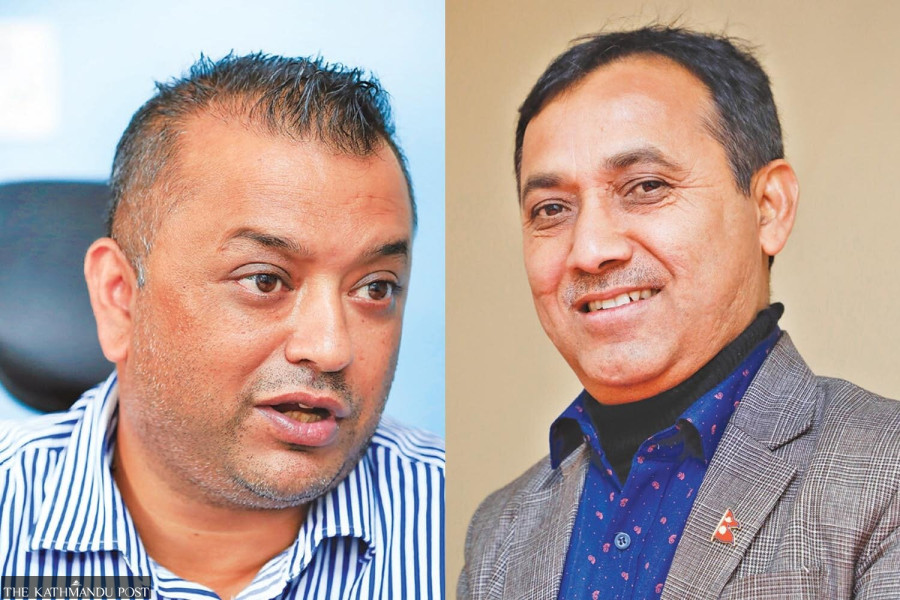Politics
NC general secretaries oppose electoral alliances
Toeing Gagan Thapa’s line, Bishwa Prakash Sharma now says forging alliances ahead of polls would be inappropriate.
Post Report
Nepali Congress general secretaries duo Gagan Thapa and Bishwa Prakash Sharma have ruled out the idea of an electoral alliance, a topic which has sparked heated debate in Nepali politics for some time. Thapa had first spoken against forging any pre-poll alliance during the Mahasamiti meeting of the Nepali Congress, which concluded in February.
Toeing Thapa’s line, another general secretary Sharma also amended his contemporary political report, which he had presented at the Mahasamiti meeting, and tabled a revised version during the ongoing meeting of the party’s central working committee.
In his amended political report, Sharma stated that forging alliances before elections would be inappropriate.
While presenting his report at the Mahasamiti meeting in February, Sharma had stated that it would be inappropriate to discuss an electoral alliance four years before the elections. The next periodic general elections are to be held in 2027.
“But now Sharma has fallen in line with Thapa,” said a Nepali Congress leader wishing to remain unnamed.
Similar sentiments are emerging inside the CPN-UML and other parties, with growing calls to contest the elections single-handedly.
In 2017, the Nepali Congress forged an electoral alliance with the CPN (Maoist Centre) for the local elections, but six months after the elections, the Maoist Centre ditched the Congress and joined hands with the CPN-UML.
And in the 2022 elections, the Nepali Congress, the Maoist Centre, and three other parties forged an electoral alliance, but this partnership with the Maoist Centre did not last long.
When the Mahasamiti meeting convened in Kathmandu, in February, the Nepali Congress was in power in partnership with the Maoist Centre. Supporting this alliance, General Secretary Sharma, in his report, had stated that the Congress should act responsibly and with caution to ensure that the ruling alliance remains stable.
Sharma had said in his report that since no party has a majority in Parliament, there is no alternative to the alliance to work for the nation and the people.
The Mahasamiti meeting widely discussed the merits and demerits of forging alliances in the elections, but Thapa's proposal to contest the upcoming elections single-handedly was endorsed. The reports of Thapa, Sharma, and the policy-related report of party vice president Purna Bahadur Khadka, were forwarded to the party’s central working committee for final decisions.
“It is natural to forge alliances after the election results, but forging alliances ahead of the elections and contesting elections jointly is inappropriate,” said Thapa in his report.
Sharma, in his report, has outlined the reasons for not forging electoral alliances. He said the party’s traditional voters and supporters do not like to vote for the election symbols of other parties. He also pointed out the decline of the party’s vote share by seven percent under the proportional representation system compared to the first past the post elections.
Meanwhile, several senior leaders of the CPN-UML have publicly said that the party will contest the upcoming elections on its own strength. Some Maoist Centre leaders including the party’s chairman, Pushpa Kamal Dahal, are also making similar statements, indicating that they too will contest the next general elections independently.




 13.12°C Kathmandu
13.12°C Kathmandu













